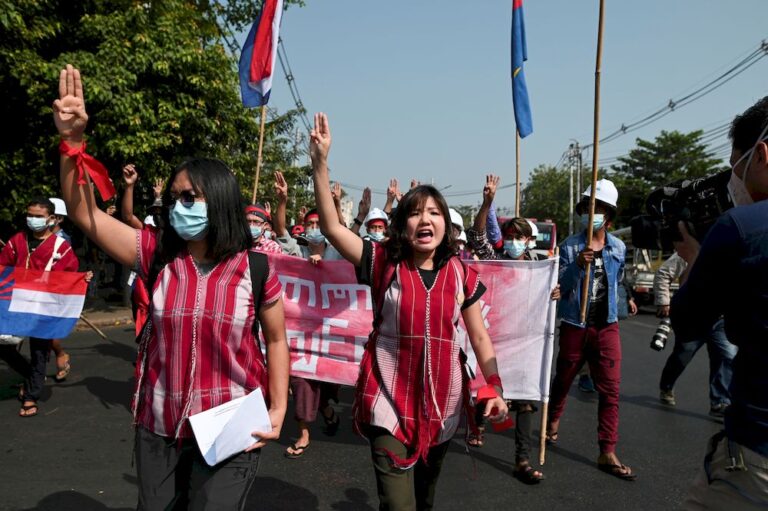
(Reuters) – Tens of thousands of people took to the streets of Myanmar’s cities on Saturday to denounce this week’s coup and demand the release of elected leader Aung San Suu Kyi despite a blockade on the internet by the junta.
In an upwelling of anger in the country’s largest city, Yangon, protesters chanted, “Military dictator, fail, fail; Democracy, win, win” and held banners reading “Against military dictatorship”. Bystanders offered them food and water.
Late in the evening, a rumour of Suu Kyi’s release – quickly denied by her lawyer – triggered noisy street celebrations.
Cheering and letting off firecrackers, residents said the message was shared by the military-run media Myawaddy. But Suu Kyi’s lawyer Khin Maung Zaw denied that the 75-year-old leader had been freed and told Reuters she was still in detention.
Suu Kyi’s National League for Democracy (NLD) won Nov. 8 elections in a landslide, a result the generals have refused to recognise, claiming fraud.
Earlier, thousands marched on Yangon’s City Hall. Drivers honked horns and leaned out of their cars and raised the three-finger salute, a gesture returned by protesters. Some of them held up NLD flags or pictures of Suu Kyi and clapped and danced.
By evening, the protesters had mostly dispersed. But for a fifth night, a cacophony rose in the darkness as people banged on pots, pans and drums in a show of resistance even as power cuts affected many districts of the city.
Thousands more took to the streets in Myanmar’s second city Mandalay and its military-built capital Naypyidaw, home to the nation’s government servants, where demonstrators chanted anti-coup slogans and called for Suu Kyi’s release.
The protests built despite a blockade of the internet imposed after demonstrators first began to gather. All day, the state-run broadcaster MRTV showed scenes praising the military.
Monitoring group NetBlocks Internet Observatory reported a “national-scale internet blackout”, saying on Twitter that connectivity had fallen to 16% of usual levels.
The junta did not respond to requests for comment. It extended a social media crackdown to Twitter and Instagram after seeking to silence dissent by blocking Facebook, which counts half of the population as users.
Facebook urged the junta to unblock social media.
“At this critical time, the people of Myanmar need access to important information and to be able to communicate with their loved ones,” Facebook’s head of public policy for Asia-Pacific emerging countries, Rafael Frankel, said in a statement.






